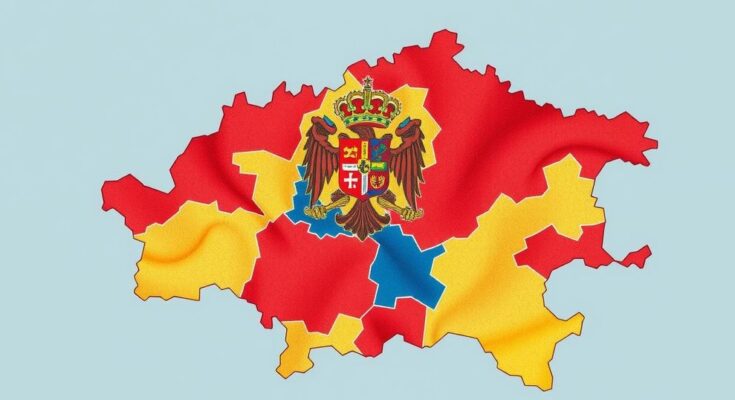Romania’s Constitutional Court annulled its presidential election results due to evidence of Russian interference, marking a significant response to foreign manipulation of democratic processes. The ruling halts electoral proceedings involving far-right candidate Calin Georgescu, who was reportedly supported by Russian-funded campaigns. This proactive measures calls for democracies to enhance cooperation and accountability to safeguard electoral integrity against similar threats.
In an unprecedented move, Romania’s Constitutional Court annulled the first round of its presidential elections on November 24, citing substantial evidence of Russian interference. This decision represents a significant departure from the passivity seen in other nations affected by Moscow’s manipulations. Notably, the court’s ruling interrupts the electoral process involving the far-right pro-Putin candidate, Calin Georgescu, who previously garnered significant support through a Russian-funded TikTok campaign. Romania, which has historically been targeted by Russian aggression, aims to fortify its status as a NATO ally by demonstrating a commitment to electoral integrity.
Georgescu’s candidacy raised eyebrows not only because of his pro-Kremlin stance but also due to his controversial beliefs, which reportedly include anti-vax sentiments and UFO claims. His rise has been alarming given that he had surfaced as a significant political player almost overnight, bolstered by a social media blitz that reached millions. The outcome of the elections would critically influence Romania’s alignment with Western institutions, highlighting a broader struggle against Russian attempts to destabilize democratic processes in Europe.
Critics of the court’s ruling express concerns that halting the elections could inadvertently favor liberal candidate Elena Lasconi, predicted to win against Georgescu. Yet, this definitive action by Romania may serve as a cornerstone in resisting Russian meddling that has hitherto been met with limited efficacy by Western democracies. Venturing beyond mere criticisms, Romania’s decisive stance marks a tangible response to pervasive threats against the liberal order posed by authoritarian regimes.
Prevailing geopolitical dynamics have contributed to a climate of instability wherein Putin’s calculated support for nationalist candidates aims to undermine EU unity and NATO cohesion. Observers believe this approach is strategic, as a divided Europe could become increasingly vulnerable to Russian aggression. Romania’s position as both a NATO member and a supporter of Ukraine places it at the forefront of this geopolitical struggle, making its actions highly consequential.
As the world grapples with Russian interference in democratic processes, experts suggest vital steps toward counteraction. Enhanced cooperation among democracies, accountability for social media platforms such as TikTok, and initiatives to educate the electorate about disinformation tactics comprise essential measures. With Romania taking bold action, there is hope that other democracies will follow suit in upholding election integrity and resisting foreign manipulation.
In summary, Romania’s recent actions usher in a pivotal moment in the fight against Russian election interference, demonstrating the potential for democratic resilience against autocratic subversion.
The topic of Russian interference in elections has gained prominence over the last two decades, particularly following the 2016 U.S. presidential elections and various political upheavals across Europe. Russia’s strategic approach involves promoting divisive nationalism and undermining established democratic norms, often achieved through disinformation campaigns and direct support for populist leaders. Romania’s recent decision marks a significant response to these tactics, signaling a potential shift in the approach other nations might take towards safeguarding their electoral integrity from external threats. Romania’s own historical context, recovering from past Russian oppression, adds complexity to its current geopolitical considerations as it navigates alliance with Western institutions.
The recent annulment of presidential election results in Romania illustrates a proactive stance against Russian interference, contrasting sharply with the passive responses observed in other affected countries. By identifying and addressing foreign manipulation, Romania not only defends its democratic processes but also stands as an exemplar for other nations facing similar threats. A commitment to cooperation, accountability, and public education will be crucial as democracies worldwide work to fortify their electoral integrity and resist authoritarian influences in the contemporary political landscape.
Original Source: www.newsweek.com




